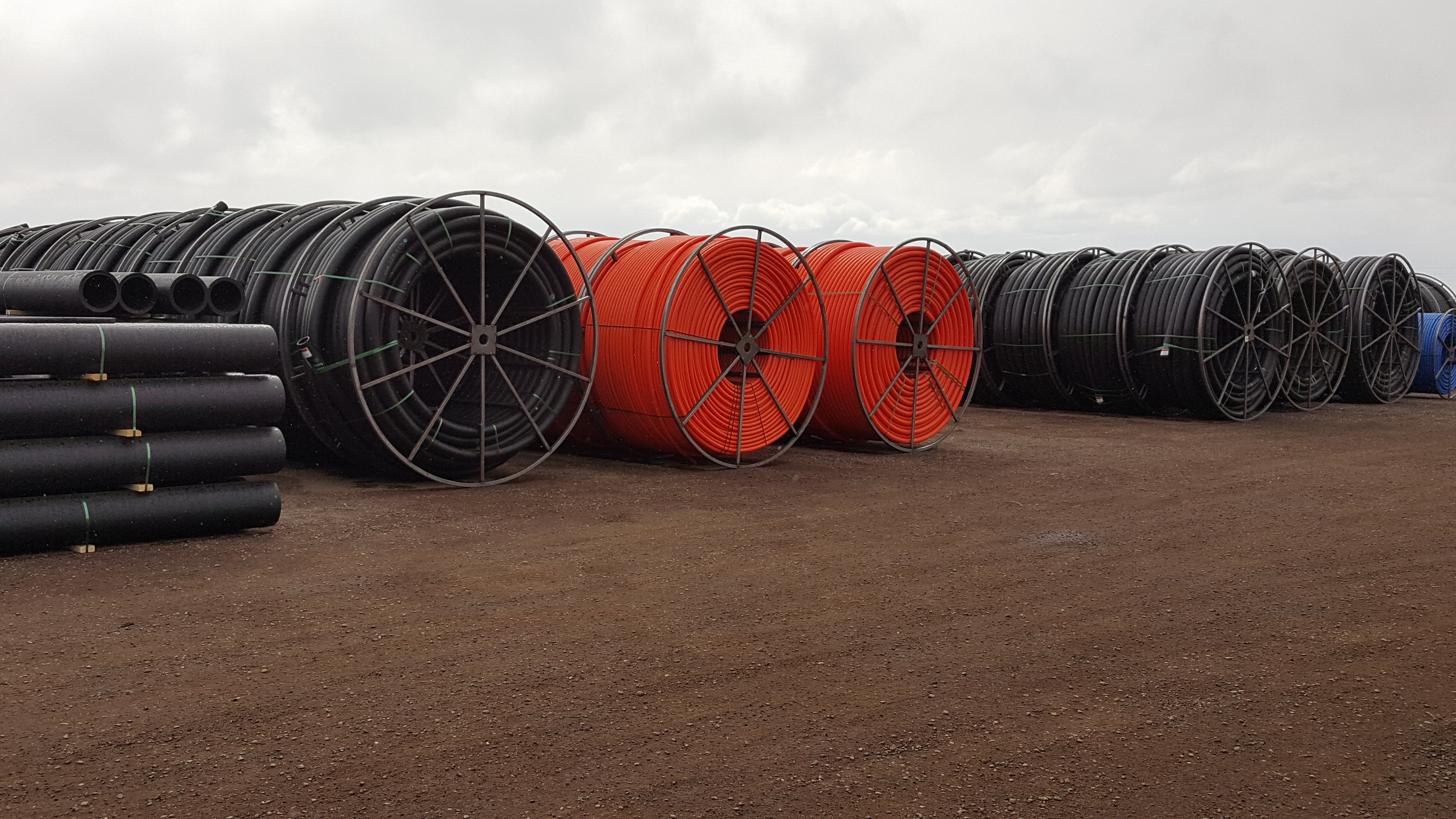To enter new markets such as gas distribution and water distribution, high-density polyethylene (HDPE) pipe manufacturers must thoroughly understand these markets and be ready to adapt to meet industry certification. Tolerances are tighter, material specification more exact, and facility and material certification more important for manufacturing pipe for these markets. FM approval and UL listing are critical certifications for HDPE pipe applications.
United Poly Systems understands the importance of manufacturing certification and continues to provide high-quality HDPE pipe for every application. UL listing, FM approval and quality control testing is part of the process for everything UPS manufactures.
UL listed and FM approval certifications
UL listed or FM approved HDPE pipe is a product that has been tested by industry safety organizations for a specific application and “listed” or “certified.” The manufacturing facilities that produce UL listed and FM approved material must be inspected and tested to receive certification.
Although FM approval is mainly for HDPE pipe used in fire protection systems—including water lines, water mains and fire hydrant connections—it is also used to spec many other water distribution applications. It is extremely important that these lines maintain the water supply during firefighting or natural disasters. FM approval means the manufacturing facility has passed testing and is certified to produce quality pipe.
UL listed material is most commonly used for HDPE pipe in electrical work and/or Department of Transportation (DOT) projects. In these projects, HDPE is typically used as conduit to protect electrical and communication lines along highways, streets and municipal infrastructure.
The UPS facilities in Springfield, Missouri, and Albuquerque, New Mexico, are UL Listed and have FM approval. Both manufacturing facilities are tested for certification and the finished product and process are certified as well. Facilities are certified by inspection of the equipment, best practices review and the extrusion process. The finished pipe is also inspected to make sure it meets the material specification process for each application. These inspections are ongoing. There is periodic auditing at both facilities to maintain both UL and FM certification.
“Customers appreciate having the ability to inventory material with FM Approval and UL Listed certification. It means the manufacturer had to go through all the testing and processes to get certified. There is a greater guarantee of quality for the finished product, and it takes the burden from the vendor to supply that quality product,” commented Logan Bridges, Vice President, Marketing Strategy and Commercial Operations for UPS.
UPS also maintains testing and certification as part of their internal quality process.
Raw material certification
Material certification comes from the raw material manufacturer and goes directly to UPS purchasing and quality departments when the material arrives. They confirm that the certification meets UPS and industry requirements before the material order is accepted.
Carbon black testing
Carbon black testing is performed to determine the carbon content of the raw material. Different end products require different carbon content, particularly pipe for high-pressure applications or pipe that requires UV protection. Additional Carbon Black can be added to the resin mix prior to extrusion to obtain the correct percentage required for a specific application.
Sample testing during the manufacturing process
Samples of extruded pipe are taken before each production run and every hour for quality control. Sample sections are sent to UPS’ in-house quality control lab to confirm specs such as tensile strength, burst rating and dimensions.
Traceability for the life of the product
Production codes and data for each batch of material are stored on a protected server that allows UPS to call up any produced material with a simple print line code from the field. When an order ships, the certification is included in the shipping paperwork and a copy of all documentation is sent to the customer. This ensures full traceability of all material. If there is ever a question about material origin or quality, or if there is a material failure in the field, there is a complete record of the raw material, so UPS can identify how much pipe was made with the specific batch of material.
About United Poly Systems
United Poly Systems produces quality HDPE pipe in diameters from ¾-in. to 26-in. IPS, 4-in. to 24-in. DIPS and ¾-in. to 2-in. CTS for use in many industries including telecommunications, power utility, water, electrical and oil and gas. The market for HDPE pipe continues to expand as initiatives to improve, repair and expand the country’s infrastructure are implemented.
Our off-the-shelf HDPE conduit/pipe is available in a variety of sizes, colors, dimensions and lengths, with or without stripes. We also offer fully customizable HDPE conduit options. In addition, piping can be customized with a ribbed interior (to maximize the distance cable may be pulled or jetted), pull tape, or a lubricated interior (for easier installation).
Success at UPS can be attributed to our vast experience, extensive client relationships, state-of-the-art manufacturing and quality processes. Our agile business model that allows UPS to quickly meet customers’ needs without the overhead expenses that are incurred by many of the larger producers in the industry.
Conveniently located in Springfield, Missouri and Albuquerque, New Mexico, United Poly Systems can provide quick delivery to a majority of the U.S. market.


